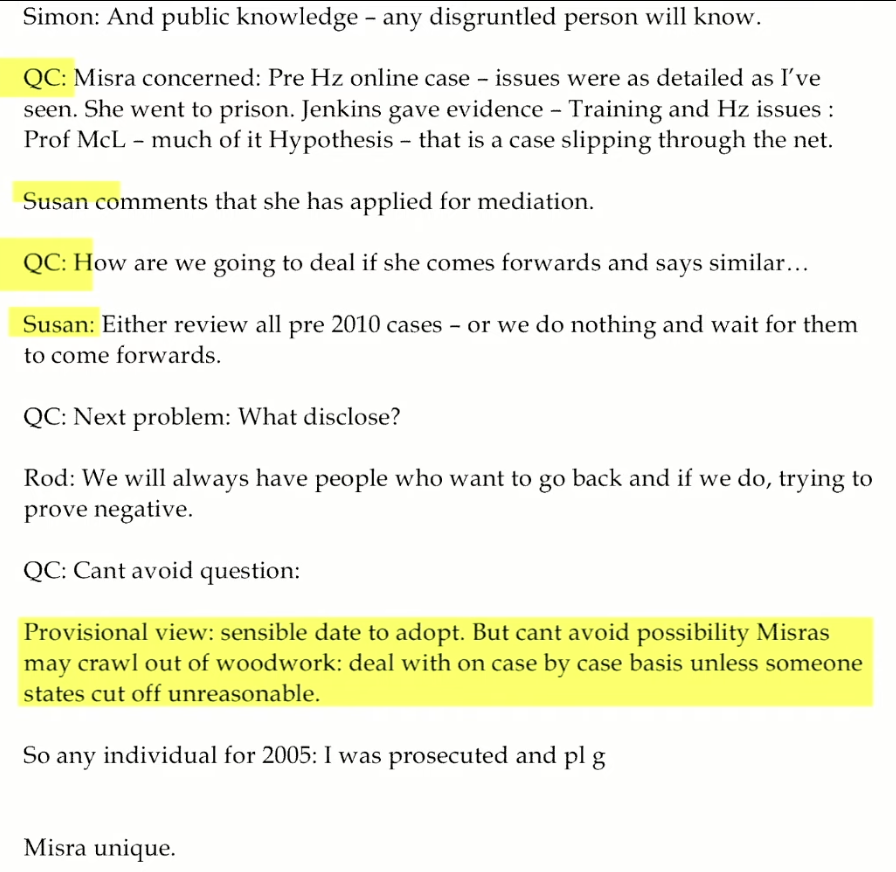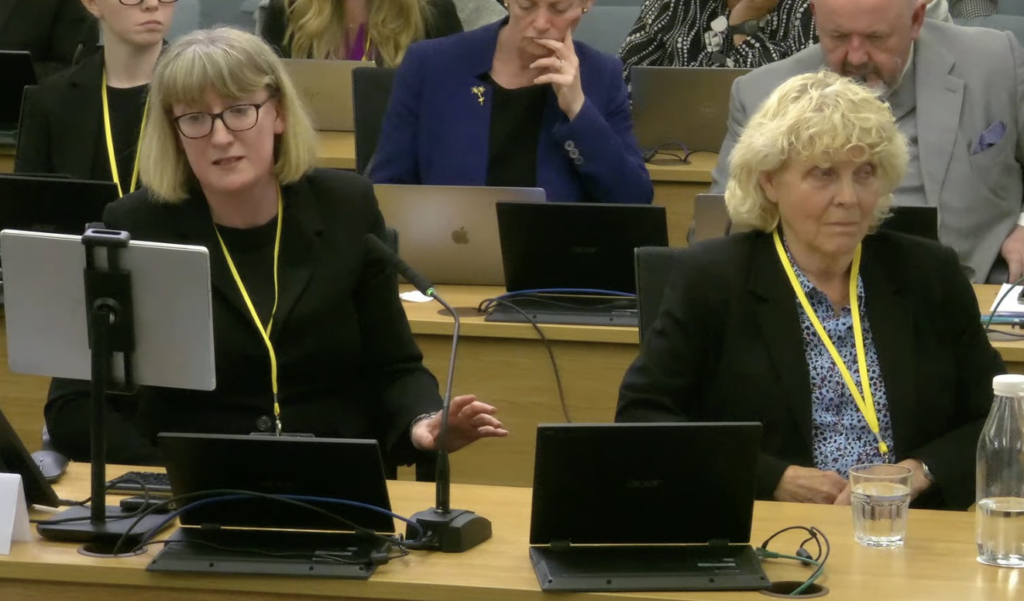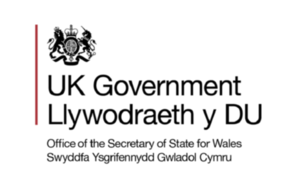The thing is Bob NOBODY UNDERSTOOD there was REMOTE access to Horizon until Gareth Jenkins told Second Sight and even then the penny didn't drop until Simon Clerk at one of the solicitors used to prosecute people (Cartwright King) realised that Jenkins statement that was being used in the prosecutions but did not DISCLOSE this FACT.
He wrote to inform the PO that their EXPERT WITNESS (Gareth Jenkins) was unsafe and that was in July 2013.
How then can you have a cover-up when no one knew there was something to cover-up???Charlie Falconer and Jack Straw were indeed Secretary of State for Justice between 2003 to 2010 BUT the COVER-UP could only have started in
2013 when the potential (and almost certain) miscarriage of justice was uncovered.
Second Sight's Interim Report was released on the 8th July 2013
https://www.postofficescandal.uk/post/the-second-sight-interim-report/The Clarke advise was written immediately it was read by Simon Clarke on the 15th July 2013
https://www.postofficescandal.uk/post/the-first-clarke-advice/The Clarke advise is here and it is reasonably easy to read and understand
https://www.postofficescandal.uk/wp-content/uploads/2022/10/Clarke-advice-re-Jenkins.pdfIt follows therefore that any 'cover-up' can only commence from Post Office Ltd from 15th July 2013 - and therefore can NOT be a government cover up starting in 1998/9 by Tony Blair and every succeeding government thereafter.
Yes the cover-up may then encompass historical court cases such as Mistra (2010) but by definition it COULD NOT have been a cover-up at the time (2010) because no one knew Gareth Jenkins did not make full disclosure.
(Well maybe someone did and that would be the PO legal person who guided Jenkins through being an expert witness and that at the moment seems to be the hapless
Jarnail Singh)
The cover-up STARTS following the Clarke advice and develops like this...
During the call, Jenkins candidly admitted he was the information source for Second Sight’s bug notice. That led to the first Clarke Advice in which Simon Clarke told the Post Office that Jenkins was a tainted witness who could not be used in future court cases. Clarke also recommended that all Post Office prosecutions should be reviewed.
So far so good. Simon Clarke had (correctly) thrown an enormous spanner in the works of the Post Office’s bent prosecution machine. What has mystified legal folk since is why Seema Misra was not told her conviction may be unsafe.
We know that Gareth Jenkins was not properly instructed as an expert witness, but no one to date disagrees with Clarke’s analysis. Jenkins knew about the extent of bugs in Horizon, but did not reveal them to Seema’s defence team or the court. As Martin Smith today agreed, Jenkins had potentially perjured himself, perverted the course of justice or both. This should have been disclosed to Mrs Misra, but was not.
The review of Post Office prosecutions became a Cartwright King review of prosecutions post-2010 on fairly arbitrary grounds. Furthermore, the question for the review was not whether to tell Postmaster defence teams that Gareth Jenkins was a tainted witness. It was whether or not to give them two documents (the Second Sight Interim Report and the Helen Rose Report) which revealed bugs in Horizon.
Brian Altman QC [Altman is a really, really big gun to wheel out - in football terms he's probably at Machester City level - Sluffy] was brought in to review the Cartwright King review. On 9 September 2013, eight lawyers gathered at the feet of Altman. They were Susan Crichton, Rodric Williams,
Jarnail Singh (all Post Office), Simon Clarke, Harry Bowyer, Martin Smith (Cartwright King), Andy Parsons and Gavin Matthews (both Bond Dickinson).
The issue of Gareth Jenkins is front and centre to the discussion. Altman brings up Seema Misra and voices his concern that Jenkins (uniquely) gave oral evidence at her trial. The case was brought before 2010, and therefore before the arbitrary cut off date the Post Office had chosen to review its prosecutions. According to Smith’s typed notes of the meeting, Altman wondered how they were going to “deal” with Seema Misra if “she comes forward”.
[For information Martin Smith one of the lawyers listed above is being interviewed at the inquiry by Ed Henry KC - Sluffy]
“So she’s got to come forward”, noted Henry. “The impetus is on her. No one is going to tell her.”
Smith did not demur.
“It seems, by this stage, no one wanted to provide Mrs Misra with a ‘ticket’ to use your expression, to the Court of Appeal. Adopt a passive approach. Correct?”.
“I would certainly agree”, replied Smith “the Post Office did not want, at that stage, to be actively encouraging people to go to the Court of Appeal.”
The minutes also record Altman approving (as “sensible”) the 2010 cut off date for what became known as the CK Sift Review and reviewing pre-2010 applicants on a case-by-case basis. He then notes the Post Office “can’t avoid the possibility [the? more?] Misras might crawl out of the woodwork”.

Smith’s typewritten note of the meeting with Altman
Henry wanted to know why Seema Misra wasn’t a slam dunk for disclosure, given that an expert witness, who may have committed perjury during her trial, was now accepted by all present as tainted.
“I don’t know”, replied Smith.
The meeting minutes show the gang of lawyers keep coming back to the Misra issue. When Gavin Matthews suggests apologising, Altman says “I wouldn’t.” He is also adamant she needs to be kept out of the mediation scheme, or the Post Office is “storing up trouble”.
Henry took Smith to a Cartwright King note likely written by Smith’s colleague Harry Bowyer which stated that by December 2013 it was his opinion that the Misra case “clearly passes the disclosure threshold” and that Cartwright King “will be disclosing the Second Sight Interim Report and the Helen Rose report to Misra’s lawyers”.
By January 2014, this advice has somehow, magically changed. Simon Clarke is now reviewing the Misra case, and he concludes she is due no disclosure, advice Henry told the Inquiry Clarke forwarded to his colleague Martin Smith with a covering email simply stating “Phew!!!”
Henry asked Smith if he believed Seema was “owed the truth”. Smith agreed “absolutely”. So, Henry asked, what happened between December 2013 and January 2014 to change Cartwright King’s advice?
Smith suggested more documents about Seema Misra’s case had become available to Cartwright King, but how they had a bearing on the final – reputationally essential – decision not to disclose, was not something he could opine on.
THIS IS THE COVER-UP - nothing at all with Bob's twisted, prejudicial and biased view of government from Tony Blair onwards.
There was no Powers That Be cover-up, with their hands all over it from the very start - the cover up was initially at least a legal slight of hand to recognise that the Post Office had used a TAINTED WITNESS' but somehow spin it that the defence had to somehow find out about that (rather than disclose it to them!)
When I've got time I'll see if I can dig out the reasoning why they did not.
Did the government get involved in the cover-up following Altman's intervention?
Well there seems to be a bad smell to me in respect of why Perkins and Vennells got themselves involved with the Royal Mail prospectus.
The Altman involvement commenced on 9th September 2013
Applications for members of the public to buy shares opened on 27 September 2013,[71] ahead of the company's listing on the London Stock Exchange on 15 October 2013.https://en.wikipedia.org/wiki/Royal_Mail#StaffingSo he had no involvement with the Royal Mail sell off, the Clarke advice was sent on the 15th July and known by Crichton but she was immediately closed down by Perkins the following day by being sat on the naughty step outside the PO Board meeting of the 16th July 2013, so why was there an apparent urgency from Vennells and Perkins to remove mention of Horizon on the Royal Mail prospectus that had to be printed and nationally delivered and sent out by a deadline just ten weeks later??
I simply don't get why Perkins apparently wanted the removal of the mention of Horizon from the document?
Let me flip it the other way - if the government KNEW all along what was going on at the PO and were covering it all up, then THEY not Perkins, Vennells or anyone else from the PO - would simply order the removal of any mention of Horizon themselves.
I can't understand why it was important for Perkins for it to be removed?
They (the government) could of course wanted to keep the 'scandal' under wraps irrespective of the Royal Mail sell off but if so why then did...
In 2015 Baroness Neville-Rolfe, on behalf of the government, told the incoming Post Office chairman Tim Parker to properly review the Horizon situation. He did so, commissioning the former First Treasury Counsel (top government lawyer) Jonathan Swift QC to investigate.
Swift, who is now a judge – Mr Justice Swift – wrote a wide-ranging Review in which he largely (and as it transpires, wrongly) sided with the Post Office on most things. Swift nonetheless raised very strong warning signs that potential miscarriages of justice might have taken place. He is particularly concerned at the Post Office’s switcheroo tactic of charging Subpostmasters with theft and false accounting and then offering to drop the theft charge in exchange for a guilty plea to false accounting.
“The allegation that POL has effectively bullied SPMRs [Subpostmasters] into pleading guilty to offences by unjustifiably overloading the charge sheet is a stain on the character of the business.” he says.
“Moreover, it is not impossible that an SPMR would have felt pressurised into pleading guilty to false accounting believing it to be less serious when they might not otherwise have done so.” https://www.postofficescandal.uk/post/secret-2016-post-office-chairman-s-report-not-shared-with-po-board/This independent report found nothing about the 2013 Clarke advice - buried by the PO thanks to Altman.
If we go on a bit further...
Patrick Green QC, lead counsel for the claimants in Bates v Post Office, confirmed it was not disclosed to the claimants during the epic High Court group litigation (GLO). This morning he said:
“The Review is an incredibly important document and we would have wished to have shown it to the Court if it had been available to us.”
James Hartley from Freeths told me the Review was:
“Yet more evidence of issues and questions of profound gravity that were known
to the Post Office’s most senior management – at the very time when they were launching the most aggressive defence to the GLO claim that public money could buy.
“Had the Post Office been transparent and responsible about how to address these issues then there is every likelihood that the GLO claimants could have been spared the ordeal of the High Court litigation that the Post Office put them through.”
On legal advice from the Post Office’s General Counsel Jane MacLeod, [She who REFUSED to attend the inquest - Sluffy] the Review (and the as yet unknown “follow-up work” engendered by the Review)
was not even shown to the full Post Office board.This “significant error of judgement” by Tim Parker was picked up in 2020 by the Post Office’s Senior Independent Director Ken McCall and reported to the government by the UKGI’s director on the Post Office Board, Tom Cooper. [This is highly significant because it shows that the government via its Shareholder Executive (Sh-ex) - the government representative who owns the one and only share in the Post Office didn't know anything - ie there could not have been a government cover-up because Sh-ex are the ones who tell the government what is going on at the Post Office in the first place - for instance the ones who wrote the report that Vennells was useless! - in other words if they KNEW of the shit that was happening at the Post Office it would be them who tell the government and then the government would then act - but if the government didn't know about the PO cover-up then they are in the dark like everyone else is. Sluffy]
Cooper says McCall felt it would be wrong to take any action against Parker because it would be “disproportionate”.
Cooper tells his colleagues in government that he hasn’t asked McCall “to put any of this in writing or come in to meet Ministers or officials to discuss, but this is an option.”
As a result of Cooper’s email, Sarah Munby, the Permanent Secretary for Business, Energy & Industrial Strategy wrote to Tim Parker in October 2020 saying:
“We understand that you were advised at the time by the Post Office’s General Counsel that for reasons of confidentiality and preserving legal privilege the circulation of the report should be strictly controlled. Nevertheless, given the background of parliamentary interest, the fact that your review was commissioned by the Minister responsible for the Post Office and the potential significance of the recommendations made by Jonathan Swift QC, we consider it was an mistake not to have ensured that the whole board had an opportunity to see and discuss the detail of its findings and agree what any next steps should be. With hindsight, this information should have been seen by the board and we are disappointed that it wasn’t.”

 Home
Home







